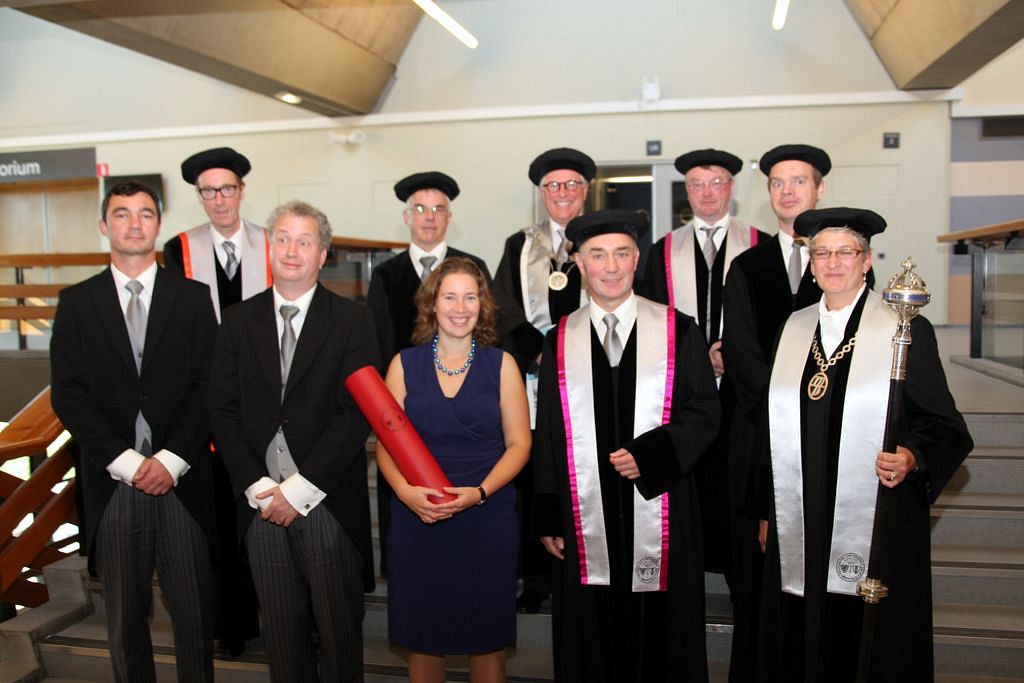Research done by TU Delft PhD candidate Mirjam Theelen has the potential to improve the stability and, subsequently, the cost and efficiency of Copper Indium Gallium Selenide (CIGS) solar cells.
Also a Solliance & TNO researcher, Theelen’s work accelerated and monitored the degradation of these cells which have an estimated 25 year lifespan.
The degradation was caused by placing different types of CIGS cells in a climate chamber, where they were monitored, being exposed to high levels of light, heat and humidity, replicating the conditions they usually face in the field, at an accelerated pace. At times additional factors were examined including the effect of oxygen and carbon dioxide on degradation. This process, called an accelerated lifetime test, aims to predict the long-term stability of CIGS cells. These are highly efficient and potentially flexible solar cells which can be integrated into a number of technologies.
CIGS cells have only been mass-produced for a number of years, meaning the efficacy of the testing and knowledge about their stability was limited, Theelen explained. CIGS cells are made up of a number of different chemical elements, and it is known that adding a small amount of sodium greatly improves efficiency. However, during the accelerated lifetime tests she carried out, Theelen discovered that sodium negatively affects the cell’s long-term stability.
It has also been accepted that water can have a negative effect on cells – one of the reasons solar cells are covered by glass or other transparent materials. This can be costly, and impacts the flexibility of CIGS cells. Whether water itself is the problem, or the way in which it interacts with the cells and other particles from the atmosphere, was not known prior to her research. Theelen’s paper posits that the problem for CIGS cells is when water and carbon dioxide interact.
These discoveries are valuable not only in creating cells more stable in the long-run but, as Theelen pointed out, if you can make cells with the same initial efficiency but greater longevity, “then your module costs of the cell combined with all the encapsulation, the protective material will be more cost effective.” As well as optimising the cell’s stability, this research is commercially useful.
This research has already been well received in Theelen’s field, and she plans to continue in her position at TNO. She told Delta that she hopes to continue with this research, developing increasingly realistic conditions for the accelerated lifetime test as well as developing a further understanding of CIGS cell’s stability.
Theelen defended her thesis, supervised by Dr. Miro Zeman, on October 2, 2015.



Comments are closed.